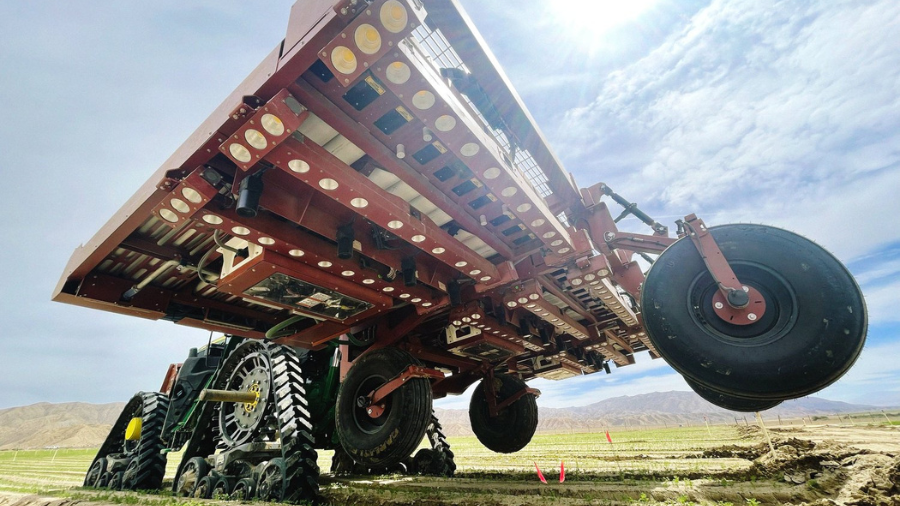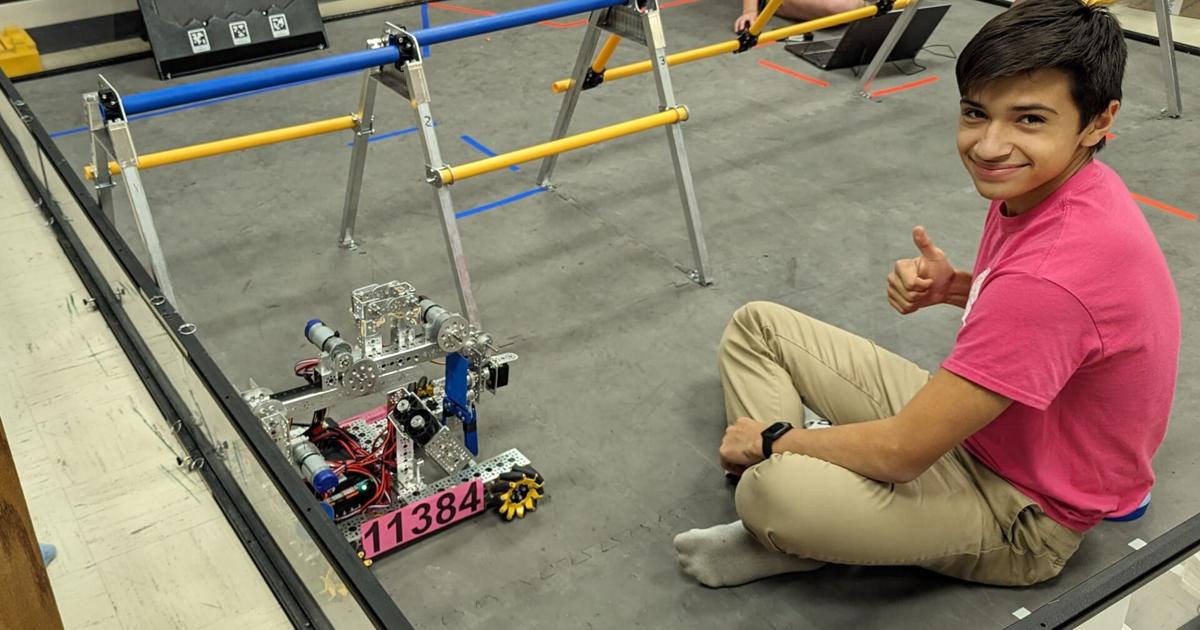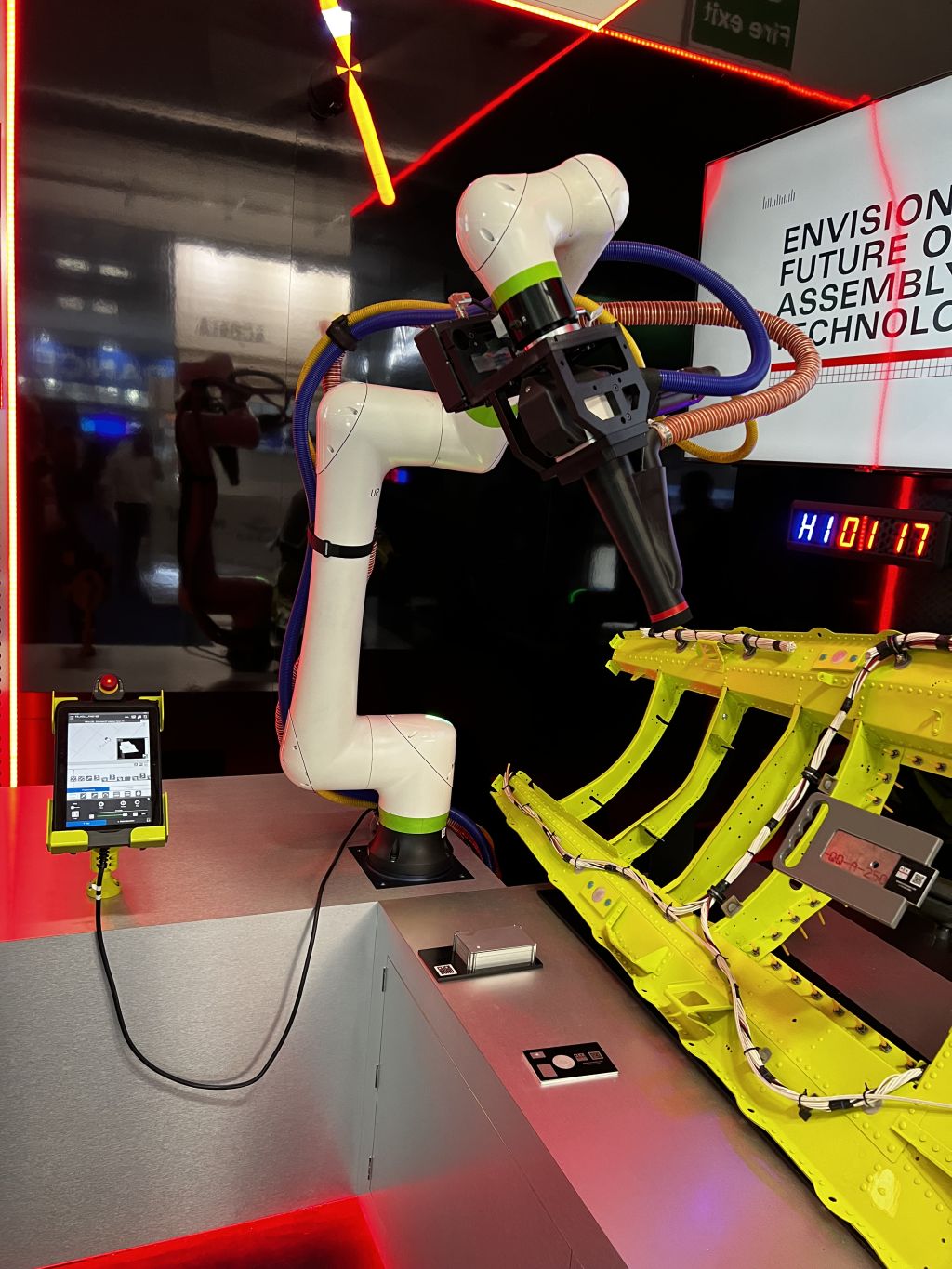Carbon Robotics, a Seattle-based AI-powered robotics company, has developed the most efficient way to rid massive farming fields of weeds.
The LaserWeeder, a chemical-free, no-till weed control solution for specialty crops, can eliminate over 200,000 weeds per hour and offer up to 80% cost savings in weed control, according to Carbon Robotics.
“We have what’s called a deep learning neural net,” Paul Mikesell, the CEO of Carbon Robotics, told Jason Rantz on KTTH 770 AM. It’s this subset of AI. And this computer is trained on a lot of images, 1000s of images with pictures from farm fields, where we know what the weeds are, and we know what the crops are. And we know what we’d like to eliminate. And then we plug that AI system into a series of lasers that we have a millimeter level of control over where it’s going to hit on the ground. And the AI targets the weeds and burns them out of the farmer’s fields.”
More on WA farming: 12-year-old charged with arson at Lacey mushroom farm
The LaserWeeder is installed with 150W CO2 lasers with millimeter accuracy, ready to fire every 50 milliseconds.
“They don’t have to spray herbicides. They don’t have to hire farm workers to come out there and pull these weeds,” Mikesell continued. “The robot just takes care of it on its own. And it’s been incredibly effective.”
The LaserWeeder was crowned 2023’s “Best AI-based Solution for Agriculture” for its time-saving efficiency — lowering costs of labor — in the sixth annual AI Breakthrough Awards program conducted by AI Breakthrough. Labor accounted for 28.2% of a modern farmer’s total expenses, according to USDA’s National Agricultural Statistics Service.
The average farm LaserWeeder has worked on has been approximately 4,000 acres in size, but the device can even be handy on smaller farms of sub-1,000 acres. Mikesell stressed the invention’s risk of fire is non-existent.
“In AI, and just technology generally, most of it has been developed in the context of Washington state. It’s developed largely in Seattle for Seattle users,” Mikesell said. “One of the things I’m really proud of is we’re developing the technology in Seattle, with all the software, electrical engineering, and mechanical engineering talent we have here, but it’s to be used in places like Richmond, Othello, and Kennewick so folks can grow better, healthier food at better costs for the entire state.”
More on WA farming: Monroe farm forced to close for months after losing its entire flock to bird flu
Mikesell stated the company is working on future projects using AI technology to improve the struggles of running a modern farm. The LaserWeeders are primarily located in eastern Washington and California — two of the biggest vegetable-growing regions in the country — but sales have started to spring in places like Europe and Australia.
Washington became one of the first states to pass legislation curbing the freedom AI technology had at its launch. Governor Jay Inslee signed a bill into law in May that regulates the use of synthetic media in campaigns for elective office, citing the need to protect the integrity of our democratic process and limit the influence of manipulative media.
While AI technology can seem endless in its potential, one of its earliest and most effective uses is speeding up the process of medical screenings, particularly making cancer imaging faster, more accurate, and more informative, according to the National Cancer Institute. For cancer treatments, doctors use imaging tests to find the disease at its earliest stages within patients, determining a tumor’s stage and surveying if the patient’s cancer has returned.
Listen to the Jason Rantz Show on weekday afternoons from 3:00 p.m. – 7:00 p.m. on KTTH 770 AM (HD Radio 97.3 FM HD-Channel 3). He is the author of the book What’s Killing America: Inside the Radical Left’s Tragic Destruction of Our Cities. Subscribe to the podcast. Follow @JasonRantz on Twitter, Instagram, and Facebook. Check back frequently for more news and analysis.















